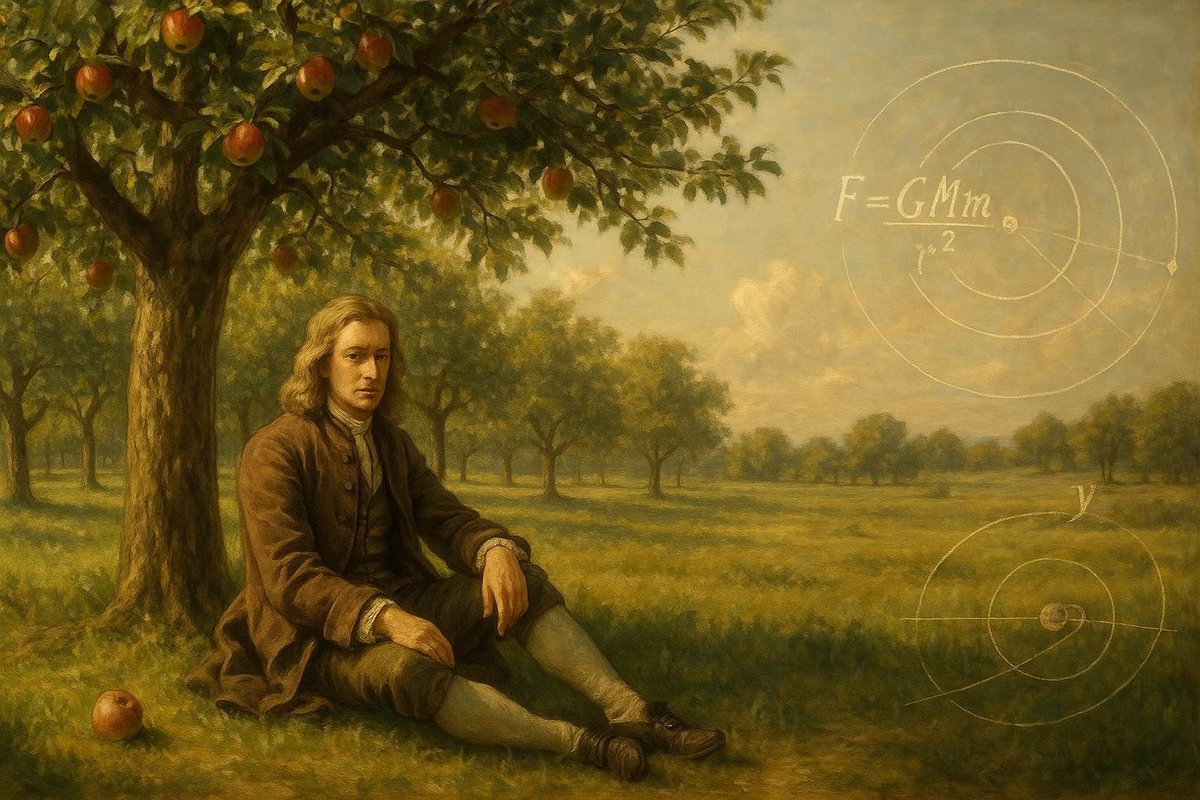
The Falling Apple: A World-Changing Moment
Have you ever wondered why apples fall straight down from trees instead of floating off into the sky? This seemingly simple question intrigued a young Isaac Newton in the 17th century, leading to one of the most profound scientific discoveries of all time: gravity. But what makes gravity such a pivotal concept, and how did this breakthrough come about? Interestingly, it’s not just about apples or even planets; it’s about understanding the very fabric of our universe.
The Problem Context: A Universe in Need of Explaining
Before Newton, many people believed in a world governed by mysterious forces. The Greek philosopher Aristotle suggested that objects move towards their natural place, which seemed more philosophical than scientific. However, this idea lacked the predictive power needed for a true understanding of motion.
- By the 16th century, scientists like Galileo Galilei began to challenge these notions, suggesting that the motion of objects could be measured and predicted.
- Galileo’s experiments showed that objects fall at the same rate regardless of their weight, a finding that hinted at a universal force at play.
As time went on, the need for a comprehensive explanation became clear. With the Renaissance fostering a surge in scientific inquiry, the stage was set for a new understanding of the cosmos.
The Theoretical Breakthrough: Newton’s Insightful Leap
Entering this intellectual arena was Isaac Newton, a curious and methodical thinker. In 1666, while pondering the fall of an apple, Newton made a connection that would change everything. He proposed that the force pulling the apple towards the Earth was the same force governing the motion of the moon and planets.
- Newton’s law of universal gravitation posited that every mass attracts every other mass with a force proportional to the product of their masses and inversely proportional to the square of the distance between their centers.
- This was a revolutionary idea, suggesting a universe bound by a predictable, mathematical force.
Newton’s insight was more than a eureka moment; it was a synthesis of observation, mathematics, and existing knowledge, marking a turning point in scientific thought.
Supporting Evidence: Proving a Revolutionary Theory
But how did Newton convince the world of his theory? He didn’t just rely on the apple anecdote. His magnum opus, the Principia Mathematica, published in 1687, laid out the detailed mathematical framework supporting his laws.
- Newton demonstrated that his law could accurately predict the orbits of planets, corroborating the earlier works of Johannes Kepler and confirming the heliocentric model of the solar system.
- By comparing his predictions with astronomical observations, Newton provided compelling evidence that gravity was indeed a universal force.
These predictions and the precise nature of his equations cemented gravity as a crucial concept, not just in physics, but in our understanding of the natural world.
Modern Relevance: Gravity’s Impact on Today’s World
Why should we care about gravity today? This fundamental force is crucial in everything from launching satellites to understanding black holes. In fact, our modern world is built on the concepts Newton introduced.
- Gravity plays a vital role in space exploration: understanding it allows us to plot courses for spacecraft and predict planetary movements.
- Even in our daily lives, gravity affects everything from the way we build bridges to how we play sports.
No wonder Newton’s apple moment is still taught in schools around the world. It’s a reminder of the power of curiosity and the profound insights it can yield.
Conclusion
Reflecting on Newton’s discovery, it’s clear that his methodical approach and willingness to question the status quo were as important as his mathematical skills. In a broader sense, his legacy reminds us of the value of curiosity and the relentless pursuit of knowledge.
Fuel Someone Else’s Curiosity
Inspired by Newton’s story? Share your newfound understanding of gravity with friends or discuss it with your family. Who knows, you might spark someone’s interest in science, leading to their own apple-falling moment of insight.

Leave a Reply